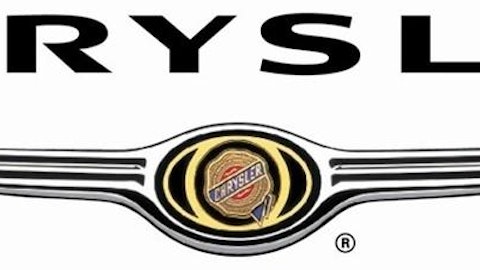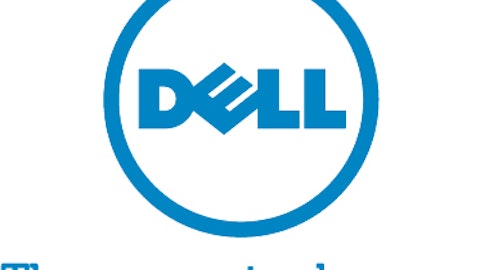Last month, the U.S. Treasury announced the launch of a trading plan to sell the rest of its stake in General Motors Company (NYSE:GM) by early 2014. This followed a decision by GM last December to buy back 200 million shares from the Treasury Department for $5.5 billion. By the end of this month, the Treasury will own just 14% of GM stock, down from a whopping 61% in 2009.
We are thus closing in on the end of the government ownership era for General Motors Company (NYSE:GM) in the United States. The “Government Motors” tag has stuck to GM like a barnacle, and the resulting blow to GM’s reputation has driven many former customers to rivals like Ford Motor Company (NYSE:F), and even foreign automakers like Hyundai and Kia.
Most Americans who opposed the auto bailouts in 2008 and 2009 have not forgiven either the government or the automakers for what they see as an intrusion by the government into the free market and the normal bankruptcy process. Recent articles about General Motors Company (NYSE:GM) here at the Fool have often inspired multiple comments from our Foolish readers to the effect that they would never consider buying a GM vehicle again because of the bailouts.
If this vocal group represents a substantial portion of U.S. consumers, the implications could obviously be massive for GM. How big of a threat does this “Government Motors” stigma pose to GM’s long-term success? We won’t know for sure until this story plays out over the coming years (and decades), but today it looks like the Government Motors scandal could cause General Motors Company (NYSE:GM) to lose its long-held No. 1 spot in the U.S. market. Ford therefore seems like a more promising investment opportunity.
“Government Motors” still weighing GM down
While Ford and GM have both been launching many new models in the U.S. recently, Ford is outperforming GM with better sales growth and better margins. GM’s “Government Motors” perception problem is probably one major cause. As of the end of May, GM’s 2013 vehicle sales were up 8.3% year over year, while Ford’s sales were up 13.0%. GM also lagged Ford in 2012, with vehicle sales growth of 3.7%, versus Ford’s 4.7% increase.
More importantly, Ford Motor Company (NYSE:F) has been delivering superior margins in North America. That’s why Ford’s North American pre-tax profit exceeded GM’s by $1.4 billion last year, even though GM still sells more vehicles. The difference in margins implies that GM resorts to price cuts and incentives to move vehicles off dealer lots more than Ford does.
It would be wrong to draw a straight line between the “Government Motors” label and General Motors Company (NYSE:GM)’s underperformance relative to Ford Motor Company (NYSE:F). Certainly Ford has been doing a lot of things right. It is releasing boldly designed vehicles like the new Fusion, which has helped Ford gain share vis-à-vis the Japanese automakers that have dominated the U.S. car market recently.

The 2013 Ford Fusion (courtesy of Ford)
However, it’s no secret that GM executives believe the company’s status as a “political punching bag” hurts sales. That is a major reason why they have been so eager for the Treasury to sell its shares. General Motors Company (NYSE:GM) has not shared any concrete data about lost sales, but the numbers are probably significant to warrant such attention.
Hitting where it hurts
Moreover, lost sales are probably hitting GM where it hurts the most — in high-margin trucks and SUVs. The auto bailouts quickly became highly politicized, with most Democrats supporting them and most Republicans opposing them. Yet a 2012 survey of auto buyers found that buyers of full-size pickups and SUVs disproportionately self-identified as Republicans.
GM is in the midst of rolling out a new line of full-size trucks and SUVs, and the success of these new models will have a tremendous impact on GM’s profitability over the next six years or so. Analysts believe that GM could earn up to $6 billion in gross profit annually from the Silverado and Sierra pickups alone. However, if the stigma of the bailout continues to haunt GM, this expected windfall will not materialize.





